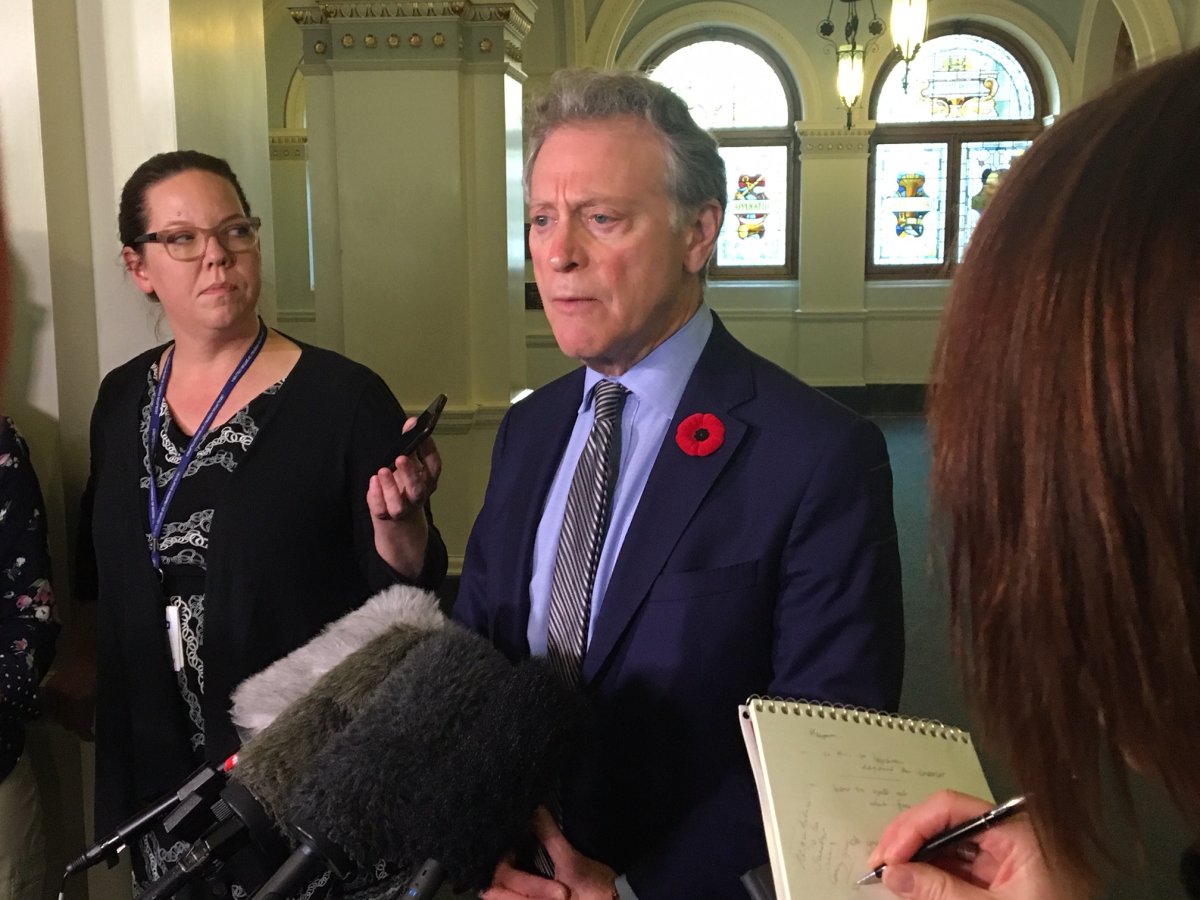The B.C. government has introduced legislation that would overhaul the environmental assessment process for major resource projects in the province. The process would provide greater say to Indigenous communities but would not allow these communities to veto certain projects.

“What people need to know about this process is that it is consent-based. It means we work towards the various ways that we understand the issues whether it is cultural, economic, environmental raised by Indigenous nations to achieve consent,” Environment minister George Heyman said.
“The final decision is made by ministers but every step of the process we will work with Indigenous nations to achieve consent.”
The previous government has been criticized for not consulting with First Nations communities about projects that would have an impact on their communities. The federal government has been forced to go back to the drawing board on the Trans Mountain pipeline expansion because of a lack of consultation with Indigenous communities.
Heyman says the new legislation would provide “a clear and timely path for the approval of responsible resource projects” while allowing the province to meet its goals of reconciliation with Indigenous communities.
“It is focused on partnerships with Indigenous nations,” he said.
- Alberta to overhaul municipal rules to include sweeping new powers, municipal political parties
- Norad looking to NATO to help detect threats over the Arctic, chief says
- Grocery code: How Ottawa has tried to get Loblaw, Walmart on board
- Military judges don’t have divided loyalties, Canada’s top court rules
“By revitalizing our environmental assessment process, we’re striking a better balance for our province, where good projects that respect B.C.’s environment, Indigenous peoples and the public will be approved more quickly.”
British Columbia became one of the first provinces in the country to introduce environmental assessment legislation when it was unveiled in 1995. Updating the legislation was part of the power-sharing agreement the government signed with the B.C. Green Party caucus.
“Revitalizing the environmental assessment process is a key shared commitment because we both recognize the need to strengthen public trust in government decision-making,” Green Party MLA Sonia Furstenau said.
“It is vital to modernize the EA process so that important considerations like climate change, cumulative impacts and new scientific standards are properly incorporated. I look forward to discussing the legislation further, so we can ensure that the wealth of our natural resources and the well-being of our ecological systems can be enjoyed by British Columbians for generations to come.”
Heyman says major projects will now have to go through an early engagement phase that will identify the focus areas for the project prior to proceeding through an environmental assessment. There will also be an enhanced public engagement period for comments.
If passed, the province will establish an environmental assessment advisory committee that includes industry, academia, non-governmental organizations, Indigenous peoples and local governments.
“Government and proponents who plan to use and develop lands and resources in First Nations territories are legally required to fully engage the impacted First Nations,” Grand Chief Ed John said.
“The environmental assessment legislation tabled today recognizes First Nations’ inherent jurisdiction and sets out a structured process to ensure compliance with Indigenous engagement standards determined by the courts and those in the United Nations Declaration on the Rights of Indigenous Peoples.”




Comments